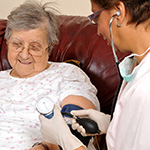Glossary
N | O | P | Q | R | S | T | U | V | W | X | Y | Z
*adjuvant therapy -A treatment used with a medication to aid its effect.
***advance care planning- Advance care planning is making decisions about the care you would want to receive if you become unable to speak for yourself. These are your decisions to make, regardless of what you choose for your care, and the decisions are based on your personal values, preferences, and discussions with your loved ones
*advance directive – Written or verbal instructions for your care if you are unable to make decisions.
*artificial nutrition hydration (fluids). There are many different kinds of artificial hydration nutrients, there are a few features common to all of them. Always in the form of a liquid, all artificial hydration nutrients consists of various amounts of water, proteins, sugars, vitamins and minerals. The amount of each of these ingredients depends on the medical condition and needs of the patient.
C
*cardiopulmonary resuscitation (CPR) – A procedure used when a patient′s heart stops beating; it can involve compressions of the chest or electrical stimulation.
**Coinsurance– an amount you may be required to pay as your share of the cost for services after you pay any deductibles. Coinsurance is usually a percentage (for example, 20%).
*consulting physician – A doctor with special training or experience who is called in to assist the primary attending physician in matters that need more specialized care.
*coordination of care – An approach in which all members of the medical team work together to plan for a patient′s care in the hospital and for discharge.
**Copayment– An amount you may be required to pay as your share of the cost for a medical service or supply, like a doctor’s visit, hospital outpatient visit, or prescription drug. A copayment is usually a set amount, rather than a percentage. for Example, you might pay $10 or $20 for a doctor’s visit or prescription.
D
**deductible– the amount you must pay for health care or prescriptions before Original Medicare, your prescription drug plan, or your other insurance begins to pay.
*do not resuscitate (DNR) order – A physician’s order not to attempt CPR if a patient′s heart or breathing stops. The order is written at the request of the patient or family, but it must be signed by a physician to be valid. There are separate versions for hospital and home (see nonhospital do not resuscitate order).
*durable power of attorney for healthcare – A document that designates the person you trust to make medical decisions on your behalf if you are unable.
E
ethical will – a document designed to pass on wisdom and love to future generations, articulating the ethical values that one cherishes and holds dear. Sometimes called a legacy letter, crafting an ethical will can be a spiritually meaningful and healing process. Rabbis and hospice professionals may be available to help you envision and write your ethical will.
F
feeding tube- A tube that is inserted into the stomach to administer liquid food. Feeding tubes are used when someone can no longer get nutrition by mouth or if they need supplemental nutrition.
H
*healthcare proxy – Similar to a durable power of attorney for healthcare: a document that designates the person you trust to make medical decisions on your behalf if you are unable.
HIPAA Release Form– A legal documents that allows your healthcare information to be provided to a designated person. You can allow all information to be released or omit specific items.
*home care – Services provided in the home, such as nursing and physical therapy.
*hospice – Considered a model of quality care, hospice focuses on relieving symptoms and supporting patients with a life expectancy of months, not years. Hospice involves a team-oriented approach to expert medical care, pain management and emotional and spiritual support. The emphasis is on caring, not curing. In most cases hospice care is provided to a patient in his or her own home. It also can be provided in freestanding hospice facilities, hospitals, nursing homes and other long-term care facilities.
*hydration – The process of providing water or fluid by mouth, tube, or intravenously.
I
*intubation – The process of inserting a tube into a patient′s lungs to help with breathing.
L
*life-prolonging treatment – Medical treatments that aim to cure or remedy an illness.
*living will – A document stating a patient′s wishes regarding medical treatments.
*long-term care – Care that supports patients with chronic impairment for an indefinite period of time; it is provided in nursing facilities, at home or in the community.
M
**Medicare Advantage Plan (Part C)– A type of Medicare health plan offered by a private company that contracts with Medicare to provide you with all your Part A and Part B benefits. Medicare Advantage Plans include Health Maintenance Organizations, Preferred Provider Organizations, Private Fee-for-Service Plans, Special Needs Plans, and Medicare Medical Savings Account Plans. If yo’re enrolled in a Medicare Advantage Plan most Medicare services are covered through the plan and aren’t paid for under Original Medicare. Most Medicare Advantage Plans offer prescription drug coverage.
**Medicare health Plan– Generally, a plan offered by a private company that contracts with Medicare to provide Part A and Part B benefits to people with Medicare who enroll in the plan. Medicare health plans include all Medicare Advantage Plans, Medicare Cost Plans, and Demonstration/Pilot Programs. Programs of All-inclusive Care for the Elderly (PACE) organizations are special types of Medicare health plans that can be offered by public or private entities and provide Part D and other benefits in addition to Part A and Part B benefits.
**Medicare Part A (Hospital Insurance)– Part A covers inpatient hospital stays, care in a skilled nursing facility, hospice care, and some home health care.
**Medicare Part B (Medical Insurance)– Part B covers certain doctors’ services, outpatient care, medical supplies, and preventative services.
**Medicare prescription drug coverage (Part D)- Optional benefits for prescription drubs available to all people with Medicare for an additional charge. This coverage is offered by insurance companies and other private companies approved by Medicare.
**Medigap policy– Medicare Supplement Insurance sold by private insurance companies to fill “gaps” in Original Medicare coverage.
mi sheberakh – a Jewish prayer of healing for the sick traditionally recited in the synagogue, though commonly used in the hospital environment.
N
nonhospital do not resuscitate (DNR) order – A physician’s order that provides direction to emergency medical services, home care, hospice and hospital emergency services personnel related to whether to withhold cardiopulmonary resuscitation (CPR). This must be signed by a physician.
*nonsteroidal anti-inflammatory drugs (NSAIDs) – A class of pain medications such as ibuprofen and aspirin.
O
*opioids – A class of pain medications that have some opiate narcotic properties but are not derived from opium.
**Original Medicare-Original Medicare is a fee-for-service health plan that has two parts: Part A (Hospital Insurance) and Part B (Medical Insurance). After you pay a deductible, Medicare pays its share of the Medicare-approved amount, and you pay your share (coinsurance and deductibles).
P
*palliate – To relieve the symptoms of a disease or disorder.
*palliative care – The medical specialty focused on relief of the pain, symptoms and stress of serious illness. The goal is to improve quality of life. Palliative care is appropriate at any point in an illness and can be provided at the same time as curative treatment.
*percutaneous endoscopic gastrostomy (PEG) – A surgical procedure for inserting a tube into the stomach to provide nutrition and hydration.
**Premium– The periodic payment to Medicare, an insurance company, or a health care plan for health or prescription drug coverage.
*primary attending physician – A patient′s main doctor, who coordinates all referrals to specialists.
Psalms – The first book of the third section of the Hebrew Bible, called Tehillim in Hebrew. Psalms are commonly recited during times of difficulty.
R
S
**State Health Insurance Assistance Program (SHIP)– A state program that gets money from the federal government to give free local health insurance counseling to people with Medicare.
*subacute care – Short-term care in a nursing facility, usually for physical therapy.
*symptom – A feeling a patient has that indicates a disorder or disease.
T
Tehillim – The first book of the third section of the Hebrew Bible, called Psalms in English. Psalms are commonly recited during times of difficulty.
**TTY– A TTY (teletypewriter) is a communication device used by people who are deaf, heart-of-hearing, or ahve severe speech impairment. People who don’t have a TTY can communicate with a TTY user through a message relay cneter (MRC). An MRC has TTY operators available to send and interpret TTY messages.
V
*ventilator – A machine that breathes for a patient when he or she is unable to do so independently.
viddui – A Jewish confession of sin recited at the deathbed.
*Source: www.GetPalliativeCare.org
** Source: Center for Medicare and Medicaid Services
*** NHPCO (National Hospice and Palliative Care Organization)





